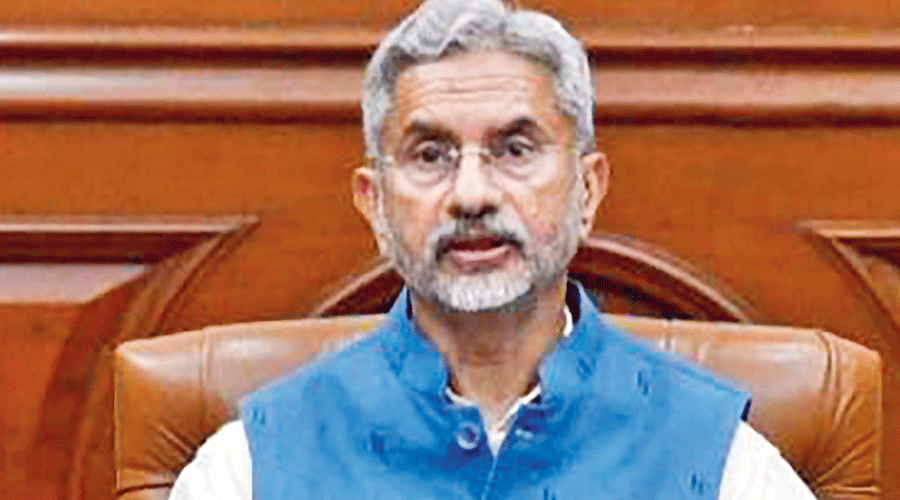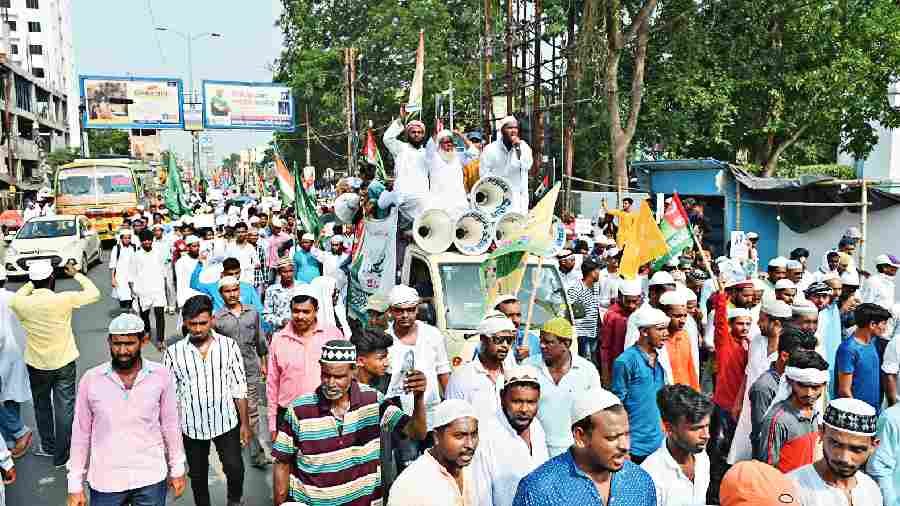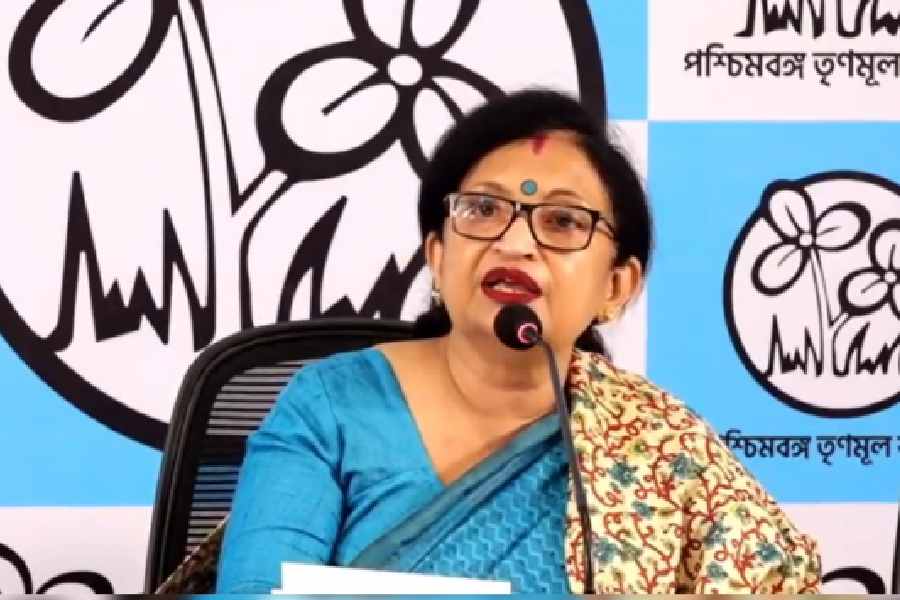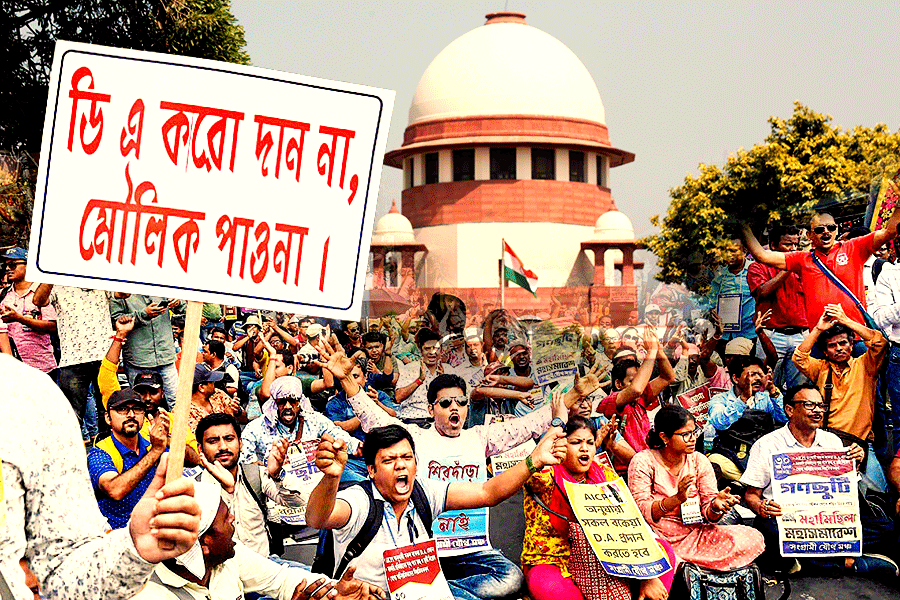The Narendra Modi administration’s 10 days of inaction after the denigration of the Prophet by the then BJP spokespersons and its failure to anticipate the blowback from West Asia is surprising for a government that is supposed to have aced the communication game, veteran diplomats said.
They also warned of the possible long-term cost to Indian interests and regional influence from the controversy.
“The government should have responded faster in a comprehensive way. It should not have waited for the ambassadors to be summoned,” retired diplomat K.P. Fabian told this newspaper last week.
“The government should have known that this would happen as denigrating the Prophet is a red line that cannot be crossed without consequences. An alert external affairs ministry would have had senior officers call in the ambassadors of Muslim countries in New Delhi and explained to them that the views expressed by BJP spokesperson Nupur Sharma did not reflect those of the government — that we were a self-correcting democracy. The ministry should have been proactive, not reactive.”
Fabian, who has worked as joint secretary (Gulf) and as a diplomat in Qatar, recalled how the Atal Bihari Vajpayee government had dealt with the diplomatic fallout of a spate of attacks on Christians.
“We were all given instructions on how to address the concern about the attacks in our host countries,” he said.
Talmiz Ahmad, former ambassador to Saudi Arabia, Oman and the UAE — all of which have condemned the comments on the Prophet — said the Gulf countries had officially kept quiet on the attacks against Muslims in India because they were circumspect about commenting on a country’s internal matters.
But when the Prophet and his family are mentioned in poor light, “it takes on a life of its own”, Ahmad said.
A video of Sharma’s remarks was shared extensively on social media across the Gulf, agitating the public and putting pressure on the region’s governments to speak up, Ahmad said.
He added that such an episode was waiting to happen, given the culture of impunity the BJP has created around attacks on Muslims.
“The top leadership of the party should realise that the time has come to stop this daily vilification of a community. This is an alarm bell that has been sounded, and mere lip service to secularism will not suffice,” Ahmad said.
Both Fabian and Ahmad underlined that while West Asian countries have been quiet about the attacks on Muslims in India, they are not unaware of the trend. In the summer of 2020, the #CoronaJihad campaign orchestrated by the Right wing had drawn criticism from several influential individuals in the Gulf, apparently with official sanction in their countries.
“While communal conflagrations in the past — the Babri Masjid demolition and the Gujarat carnage — were seen as aberrations in a region that looked up to India as a role model, they now see a political agenda behind the vilification of a particular community. They are now privy to the hate-filled messages that crowd WhatsApp,” Ahmad said.
Blogging about the controversy, retired diplomat M.K. Bhadrakumar said the ruling BJP had acted swiftly but added: “The point is, the world has taken note that anti-Muslim politics has reached a crescendo in India and is undermining the country’s democratic foundations….
“The Indian establishment is in denial mode while it has been discernible that in West Asia, the tide of public opinion has perceptibly changed unfavourably for India in recent years.
“This has profound geostrategic implications that will be felt in due course inevitably, and could only be to the detriment of Indian interests and regional influence in the medium and long term. If that happens, do not sit upon the ground and lament that China has outpaced India in ‘soft power’ in its extended neighbourhood.”
While things appear to have settled down and Iran has gone ahead with its foreign minister’s India visit, Ahmad fears long-term repercussions on West Asian recruitment from India — something the country can ill afford amid its high unemployment rates.
West Asia is home to about nine million Indian expatriates, who account for 55 per cent of India’s remittances from abroad.
The controversy is likely to impact India’s strategic goals, including its oil supplies and the free trade agreement New Delhi is negotiating with the Gulf Cooperation Council, which has condemned the denigration of the Prophet over and above all its member countries doing so. Iraq, Saudi Arabia and the UAE are major sources of crude oil imports for India, and any turbulence in this sphere can become a major headache.
But the most damaging fallout could be the loss of goodwill that India has always enjoyed in these parts.











